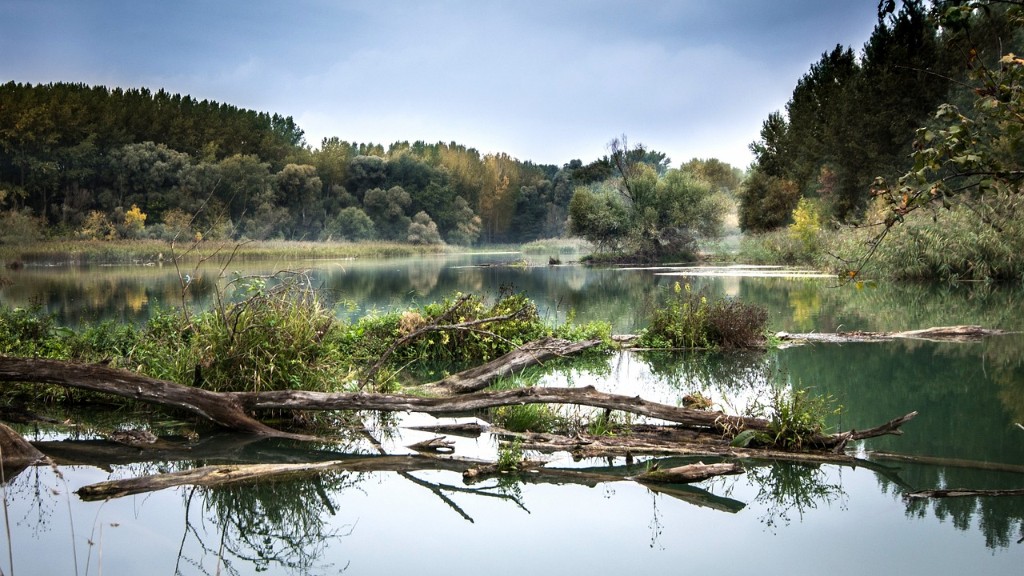Historical Significance of the Yangtze River
The Yangtze river is the longest river in Asia and the third-longest in the world. With a length of over 6,300km, it is the longest river in China and is of great importance to the Chinese people. To Chinese people, the Yangtze river is like an eternal river, as its history spans thousands of years and its role in Chinese culture is as important as the Great Wall. Its origin is steeped in mystery and intrigue, but its significance is far-reaching.
The Yangtze river is believed to have originated in the Tibetan Plateau, which lies in western China. This is evidenced by an ancient poem written about the river by a Chinese poet, in which he states “My travels have revealed a clear spring, the source of the mighty Yangtze.” The exact location of the spring is unknown, but scholars have determined it to be located somewhere in the Tibetan Plateau.
The Yangtze has played a major role in Chinese history. In ancient times, it provided a major trade route for Chinese merchants. It was also a major transportation route for people, goods, and ideas. In modern times, the Yangtze has served as an important source of fuel, food, and water for the growing population of China. The river has also been used as a defensive barrier against invading forces, as its long stretch makes it difficult to cross in times of war.
The Yangtze has also been of great ecological importance, as it is home to many endangered species, including the Chinese alligator, the finless porpoise, and the Chinese sturgeon. It is also an important spawning ground for fish, providing a significant source of food for the Chinese people.
In recent years, the Yangtze has been subject to a number of environmental issues, including pollution from nearby factories and human settlements, excessive water extraction, and the construction of a massive network of dams and hydroelectric power plants. These problems have resulted in a serious decline in the health of the river, as well as in the health of the many species which depend on it for their survival.
Ultimately, the Yangtze River is an important part of Chinese culture and history, and it remains a vital force in China’s economy, ecology, and identity. It is a river of great significance which continues to be spoken of with reverence and admiration by the Chinese people.
Social Impacts of the Yangtze River
The Yangtze River has been of great significance to the Chinese people, both in terms of culture and economy. Its importance to the Chinese people has resulted in a number of social effects, both positive and negative.
On the positive side, the river has been a major source of income and jobs for many Chinese people. Fishermen, merchants, and others have been able to make a living off of the river’s abundance. Moreover, the Yangtze has been an important factor in Chinese culture and identity, as its role in Chinese literature and history has been instrumental in shaping their collective identity.
However, there have also been some negative social impacts of the Yangtze. In recent years, the river has become polluted due to industrialization and large-scale development, resulting in health problems for those living and working near the river. This has caused a great deal of environmental degradation, which has adversely impacted the quality of life of those living in the surrounding areas. In addition, the building of the Three Gorges Dam has caused a massive displacement of over 1.3 million people.
Despite the negative impacts of the Yangtze, it continues to be an important part of Chinese culture and identity. It remains a vital source of food, income, and resources for the people of China, and its role in Chinese culture is as strong as ever.
Environmental Challenges of the Yangtze River
The Yangtze River is an important source of livelihood for millions of people and an important source of resources and food. However, it has also faced a number of environmental challenges due to pollution and over-extraction of resources.
One of the major environmental challenges facing the Yangtze is pollution from factories and human settlements. This has led to a sharp decline in the river’s water quality, with contaminants such as arsenic, mercury, and lead being found in abnormally high levels. This has caused a number of health problems for those living and working near the river as well as for the wildlife inhabiting it.
In addition, the over-extraction of resources from the Yangtze has been a major problem, as it has resulted in the depletion of the fish and other species which depend on the river for their survival. This has had a negative effect on the river’s ecosystem, as well as on the livelihood of those living along its banks.
Furthermore, the construction of the Three Gorges Dam has resulted in drastic environmental changes, with large areas of land being submerged and causing the displacement of over 1.3 million people. The construction of the dam has also resulted in a decrease in sedimentation in the Yangtze, which has a negative effect on the river’s ecosystem.
Despite these challenges, the Yangtze continues to be an important part of Chinese culture and identity, and it remains a vital source of economic and ecological resources for the Chinese people.
Conservation Efforts of the Yangtze River
Due to the many environmental issues facing the Yangtze, the Chinese government has implemented a number of conservation efforts in an attempt to protect and restore the river’s ecosystem. These measures include the termination of certain types of industrial activities, the introduction of pollution control equipment, and the enforcement of pollution limits on factories. In addition, the Chinese government has committed to the restoration of fish and other species populations, as well as to the protection of the river’s wetlands.
In addition to government efforts, there have also been a number of non-governmental efforts. For example, in 2011 the Chinese government granted a group of conservationists permission to establish a nature reserve in the Three Gorges area. This project was designed to help protect the wetlands and wildlife of the region, as well as to provide a space for educational activities.
Overall, these efforts have been successful in reducing pollution and restoring fish and wildlife populations, although there is still much work to be done. The Chinese government and other conservationists continue to work towards a goal of restoring the full health of the Yangtze River and its ecosystem.
Economic Benefits of The Yangtze River
The Yangtze River has been of great benefit to the Chinese economy, providing a source of income and jobs to the people living and working along its banks. As a major transportation route, it has allowed the movement of goods and people and has facilitated the growth of industry. It has also been a major source of hydroelectric power, providing energy to the region.
In recent years, the Chinese government has invested heavily in the development of the Yangtze River, making it a central part of its economic development strategies. This has resulted in a number of economic benefits, including the growth of ports, the creation of new industries, and the development of tourism. These projects have been instrumental in driving economic growth, with the value of the Yangtze River estimated to be over $100 billion.
The economic benefits of the Yangtze have also been beneficial to the people living along its banks, as it has provided a source of income and jobs. The fishing industry, in particular, has been a major provider of jobs, with thousands of fishermen relying on the river for their livelihoods. The river has also been an important factor in the development of trade and industry in the region, providing a transportation route for goods and people.
In the end, the Yangtze has been of great economic benefit to the Chinese people, providing jobs, income, and resources. It has also been a major factor in the growth of industry and trade, making it an important part of the Chinese economy.
Conclusion
The Yangtze River is an incredibly important part of Chinese culture and history, with historical and cultural significance. It is also an important source of food, income, and resources for the Chinese people, and its role in Chinese literature and history is instrumental to their collective identity. Unfortunately, the Yangtze has been subject to a number of environmental issues, including pollution and over-extraction of resources. In the face of these challenges, the Chinese government has implemented a number of conservation efforts, as well as a number of economic measures, in an attempt to restore the Yangtze’s ecosystems health and for bring economic benefit. Ultimately, the Yangtze remains an important part of Chinese culture and identity, and it continues to be spoken of with reverence and admiration by the Chinese people.





